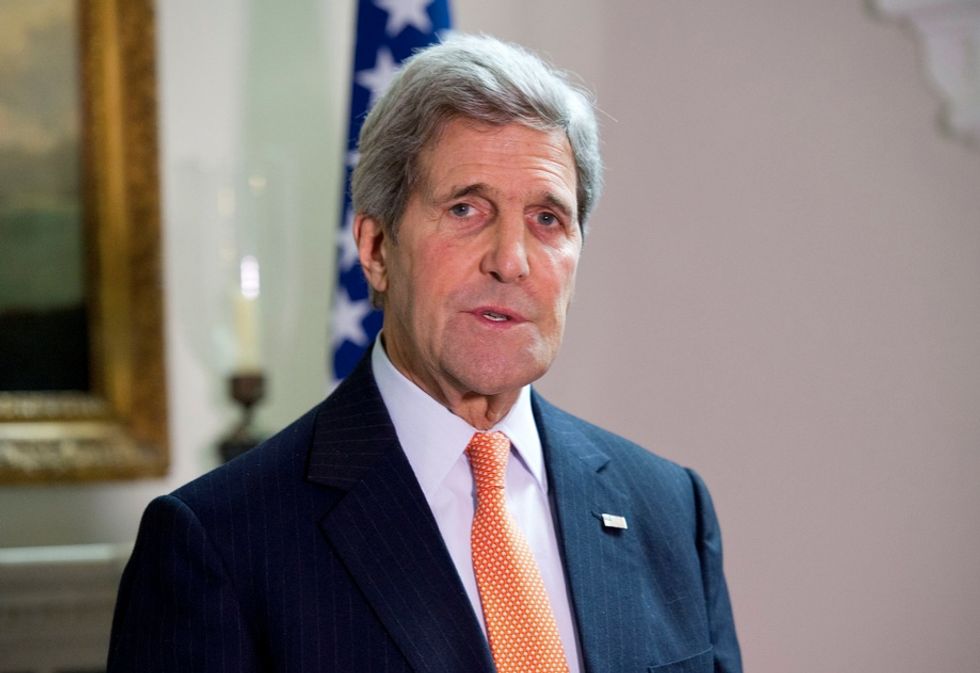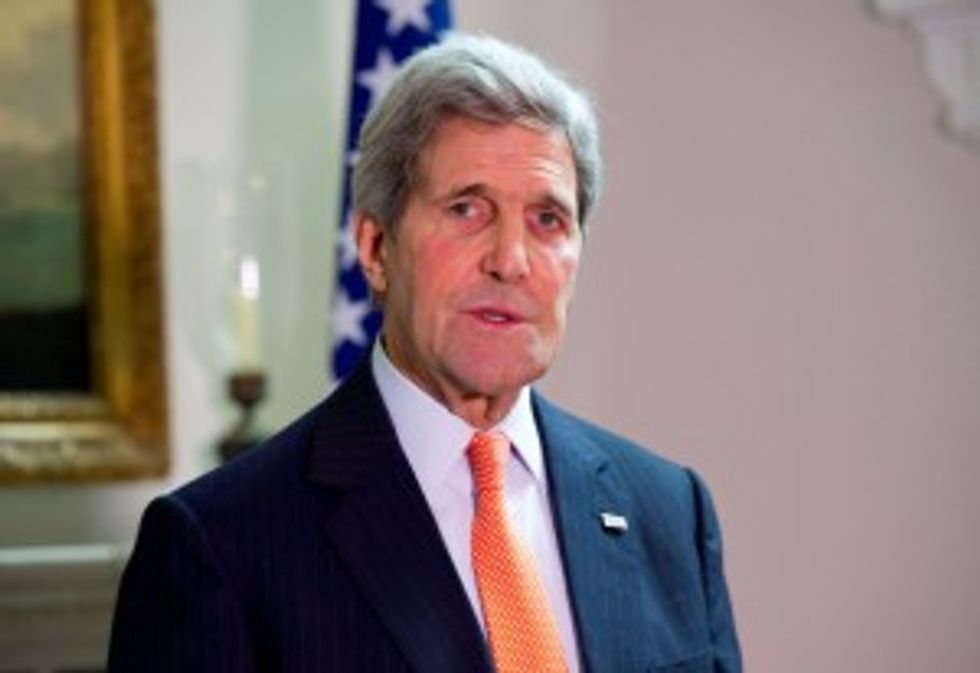
U.S. Secretary of State John Kerry talks during his press conference with Britain's Foreign Secretary Philip Hammond, not pictured, in central London Saturday Feb. 21, 2015. (Image source: AP/ Laura Lean/Pool)

Story by the Associated Press; curated by Dave Urbanski
GENEVA (AP) — With only weeks left to the deadline to reach a first-stage nuclear deal with Iran, U.S. Secretary of State John Kerry said Saturday that "significant gaps" remained and warned that America was ready to walk away from the talks if Tehran doesn't agree to terms demonstrating that it doesn't want atomic arms.

Kerry spoke after the Iranian Atomic Energy chief Ali Akbar Salehi and U.S. Energy Secretary Ernest Moniz added their muscle to the talks for the first time to help resolve technical disputes standing in the way of an agreement meant to curb Iran's nuclear programs in exchange for sanctions relief for the Islamic Republic.
But Kerry warned against undue optimism. Salehi's and Moniz's presence is no "indication whatsoever that something is about to be decided," he said. "There are still significant gaps."
World powers and Iran have set an end of March deadline for a framework agreement, with four further months for the technical work to be ironed out. The talks have missed two previous deadlines, and President Barack Obama has said a further extension would make little sense without a basis for continuing discussions.
Kerry, who flies to Geneva Sunday from London, said there was no doubt Obama was serious. The president, he said, "is fully prepared to stop these talks if he feels that they're not being met with the kind of productive decision-making necessary to prove that a program is in fact peaceful."
If the talks fail, Obama may be unable to continue holding off Congress from passing new sanctions against Iran. That, in turn, could scuttle any further diplomatic solution to U.S.-led attempts to increase the time Tehran would need to be able to make nuclear arms. Iran denies any interest in such weapons.
Skepticism about the negotiations already is strong among congressional hardliners, Washington's closest Arab allies and Israel's Prime Minister Benjamin Netanyahu, who is expected to strongly criticize them in an address the U.S. Congress early next month.
Western officials say the U.S. decided to send Moniz only after Iran announced that Salehi was coming. They were expected to discuss the number of centrifuges Iran can operate to enrich uranium; how much enriched material it can stockpile; what research and development it may pursue related to enrichment, and the future of a planned heavy water reactor that could produce substantial amounts of plutonium — which like enriched uranium is a potential pathway to nuclear arms.
Iranian Foreign Minister Mohammad Javad Zarif is also at the talks, and Kerry is to meet him Sunday and Monday.
For months, the negotiations have been primarily between Washington and Tehran. But Kerry insisted "there is absolutely no divergence" between the U.S. and the five other powers — Russia, China, Britain, France and Germany — over what Iran needed to agree to, "to prove that its nuclear program is going to be peaceful in the future."
—
Follow Dave Urbanski (@DaveVUrbanski) on Twitter